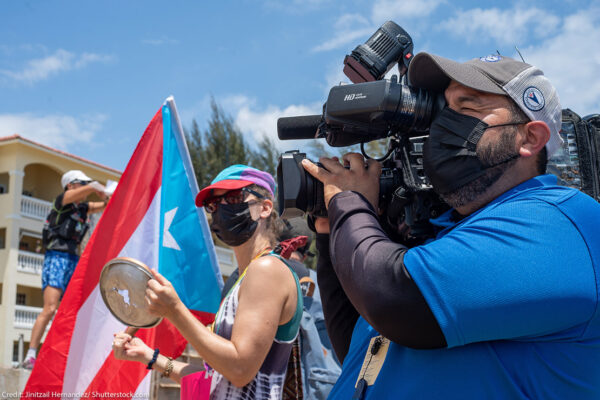Fear of FCC Leads Some Stations to Pull "Private Ryan" on Veterans Day; ACLU Warns of Chilling Effect on Freedom of Speech
Fear of FCC Leads Some Stations to Pull "Private Ryan" on Veterans Day; ACLU Warns of Chilling Effect on Freedom of Speech
FOR IMMEDIATE RELEASE
Contact: Media@dcaclu.org
WASHINGTON - The American Civil Liberties Union today expressed its disappointment by the decision of several ABC stations to refuse to broadcast an unedited version of the movie "Saving Private Ryan." Those stations had cited concerns over potential indecency - and subsequent Federal Communications Commission fines - within the film. The movie was to be broadcast to commemorate Veterans Day.
"The ambiguity by the FCC on what exactly is indecent means an increasingly diminished marketplace of ideas," said Marvin Johnson, an ACLU Legislative Counsel. "It's ironic that on Veterans Day, many stations are unwilling to air a movie designed to honor our veterans. One of our most fundamental rights is the freedom of expression - and the FCC's decisions represent an increasingly clear attack on that right."
Congress is currently considering increasing the fines for indecency, despite objections from the ACLU and other free speech organizations. Currently, the FCC guidelines over broadcast indecency are extremely vague and ambiguous - leading to much confusion on the part of broadcasters. As a result, the ACLU said, broadcasters are increasingly unwilling to air materials that may even possibly be considered indecent, despite the fact that it may in fact not be, out of fear of being fined.
The ACLU noted that the First Amendment normally requires a "bright line" be drawn between what is permissible speech and what isn't. To do otherwise risks chilling free speech, because a speaker will avoid any questionable speech. Unfortunately, the FCC has never adhered to this constitutional principle. While the FCC has trouble defining indecency, they "know it when they see or hear it."
"Saving Private Ryan," which won several academy awards in 1998, was to be aired tonight by ABC stations nationwide to commemorate Veterans Day, as they have done in 2001 and 2002. However, both of those airing pre-date the recent FCC decision to fine all CBS affiliate stations over the coverage of the exposure of Janet Jackson's breast during the Super Bowl halftime show.
ABC stations owned by Cox Television, Citadel Communications, Belo Corp., Hearst-Argyle and Scripps Howard Broadcasting, among others, have declined to broadcast the movie. That decision was made despite the fact that ABC is airing warnings to viewers about the fact that the movie is unedited, and does contain both graphic scenes and some profanity. ABC had also asked the FCC whether or not the movie was indecent, and the FCC refused to answer.
The ACLU noted that the FCC had previously ruled that an airing of the Holocaust movie "Schindler's List" was not indecent - a movie also contains graphic scenes and profanity. However, the FCC has also ruled the spontaneous usage of an expletive by a music award recipient on live TV as profane and indecent.
The FCC has also been unwilling to allow broadcast stations to air the same content permitted on cable television, despite the fact that nearly 85 percent of all household receive cable or satellite feeds.
"A fear among broadcasters to air certain material can only have a chilling effect on the freedom of speech," Johnson added. "In some ways, this is worse than censorship - broadcasters have no idea when the FCC will be coming after them."


